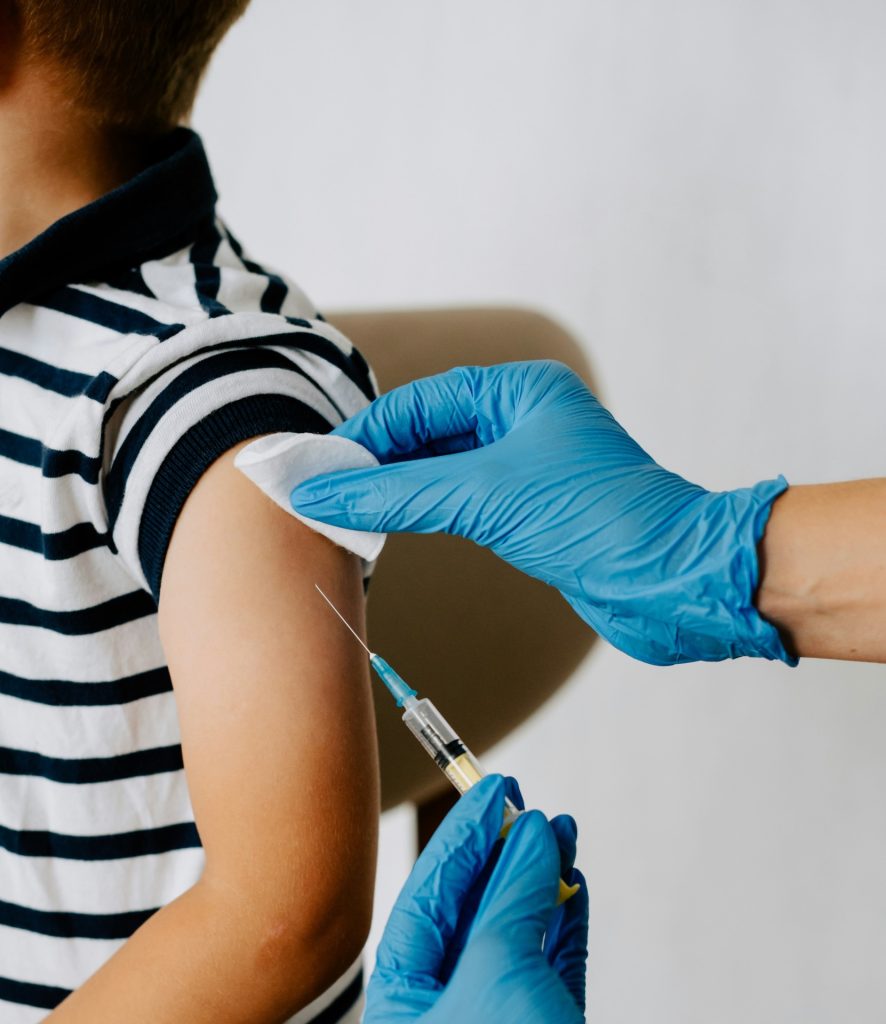With the cold and wet winter months in full swing, WA is seeing an increase in incidents of coughs, colds, and sneezes. And while these may seem common, there’s one respiratory infection that raises its head every three or four years to cause real concern for parents.
Bordetella pertussis, commonly known as whooping cough, is a bacterial infection that causes thick mucous to build up in the airways. This leads to rapid, uncontrollable coughing.
It’s particularly dangerous for young children whose immune systems aren’t as developed—and in some cases, can cause life-threatening pauses in breathing.
Here’s what you need to know to be prepared for whooping cough this year.
Getting your whooping cough vaccination can protect your whole family
The first half of 2025 saw the number of whooping cough cases rise steadily, with over 14,000 cases being reported across the country. This rise in numbers is being attributed to reduced natural immunity, caused in part by the disrupted vaccination routines throughout COVID.
This starkly highlights why regular vaccinations are so important: their efficacy fades over time. And even if you’ve had it, natural infection doesn’t give lifelong immunity. The only way to give yourself the best chance of protection is through a regular vaccine booster.
What symptoms to look out for
The scariest thing for parents is that whooping cough often starts by presenting with typical cold-like symptoms. It might be a blocked or runny nose, fatigue, or fever.
However, this is generally followed by a cough, one that tends to worsen at night. This can lead to bouts of extreme uncontrollable coughing: a barking cough, with the telltale “whooping” noise when the child breathes in.
Older children and adults may only experience a mild cough that persists for weeks—so it’s hard to know if you have it at all.
Who should prioritise a whooping cough booster in WA?
Bordetella pertussis is incredibly contagious, up to 10 times more infectious than influenza. Infants and young babies are most vulnerable to whooping cough, and often require hospitalisation for breathing support.
And while infants under six weeks old aren’t able to get their whooping cough vaccination, those around them can do their part.
- Pregnant women are recommended to get their updated pertussis vaccination. It’s perfectly safe, and when administered around 20-32 weeks, it also works to transfer antibodies via the placenta. This helps to protect their baby through direct passive protection.
- Those in a household with an infant or newborn, or likely to be in close contact with one, are also recommended to get their pertussis booster—particularly if their last dose was 10 or more years ago. It’s recommended to get the booster at least two weeks prior to close contact with an infant, to give it the best chance of working.
- Given their daily interaction with children, early childhood educators and healthcare workers should get their pertussis booster every 10 years, to help limit their transmission risk to those vulnerable members within their care.
- Adults 65 or over are also recommended to get their booster, if their last vaccination was over 10 years ago.
A good rule of thumb is if you’re going to be in contact with young children, and you haven’t had your whooping cough vaccination in a while, check your records—you may be due for a booster.

How to get your whooping cough vaccine
Under the National Immunisation Program, the Australian Government provides free whooping cough vaccines to eligible Medicare card holders, making it even easier and convenient to protect yourself.
Under this scheme, it’s free for:
- Pregnant women
- Children aged two, four, and six months, and four years old (and must be administered by a GP)
- Adolescents between 12 and 13 years, received as part of a free school-based vaccination
When it comes to whooping cough vaccinations, there are 10 varieties available. Most vaccinations are a combination vaccine, given as dTpa, a reduced-antigen formula that targets diphtheria, tetanus, and acellular pertussis. Some combination vaccines may also include inactivated poliovirus, or hepatitis B.
For everyone else, you can visit your GP or pharmacist who can recommend the best option available that’s most suitable for your family’s situation.
Let’s bust some common whooping cough myths
Only children get whooping cough
While adults don’t generally suffer as severe symptoms as children, you can still catch a mild dose. In adults it typically presents as a common cold, with a persistent cough that lasts for 5–8 weeks. So it’s possible you’ve had it in the past without realising it.
I had my pertussis vaccination when I was a child, so I’m immune
While most Australian adults with young children will have received their whooping cough vaccination, unfortunately immunity does wane over time. Protection can last up to 10 years, but its efficacy can start to fade after four or five years. So don’t wait the full 10 years to get your or your children’s next booster.
A whooping cough vaccination means I’m unable to spread it
No vaccine is 100% effective. While a whooping cough vaccination may stop you from getting a severe infection, you may still get a very mild dose without realising it. Pertussis is spread through coughing and sneezing, so you can still spread it without realising you have it.
Protect yourself and your family by getting the whooping cough vaccine
The best thing you can do to keep your family safe is to stay on top of your whooping cough vaccinations. Get in touch with your GP to check your vaccination history, and book in at Brecken Health Bunbury for your booster. Together we can help stop the spread in WA.
